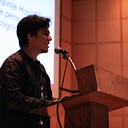We’re all lost
“Existence is beautiful, if you let it be. Life is not a question. There does not need to be an answer…” Cartographer Lazo (No man´s sky)
I once knew a man — a brilliant man. He could talk about anything: art, science, politics, or literature. His insights were sharp, his knowledge deep, and he had seen more of the world than most ever would. To anyone who met him, he was the epitome of an intellectual. But beneath all that, something wasn’t right. For all his wisdom about the world, he was completely baffled by one thing: himself.
He didn’t understand why he wanted the things he did or why his emotions pulled him in different directions. His actions often puzzled him, and he couldn’t grasp why he felt the way he felt. Despite everything he knew, he couldn’t answer the simplest question — why am I the way I am? He assumed, naively, that everyone else had found their way, as if certainty were the natural state of being human. But he never voiced his confusion, and neither did they, leaving him feeling isolated in his doubts.
In truth, it wasn’t that everyone else was certain about their lives; it was that they pretended. People wear certainty like armor, hiding their doubts and confusion behind layers of confidence, success, and achievement. And the more they suppress the feeling of being lost, the more it festers beneath the surface. The truth, it seems, is that we are all lost, wandering through life, grasping for meaning and clarity. Yet, society has convinced us that admitting this confusion is a sign of weakness. So we don’t. We hide it, even from ourselves.
And this man — my friend — couldn’t fathom that. He was different in one crucial way: he couldn’t pretend. He longed for clarity, for some kind of guide to lead him out of his mental labyrinth. He didn’t just want answers — he craved them. Answers about why he felt the way he did, why he wanted the things he wanted, and what it all meant. He wanted a roadmap to his own mind, a guide to lead him to his true self. But more than that, he wanted to believe he wasn’t alone in this search. That others, too, were wandering in the dark.
And that’s the tragedy. He thought he was alone. He thought everyone else had it figured out, or at least knew how to pretend they did. In a world that values certainty, doubt becomes a private agony. He believed that others — facing their own uncertainties — just pushed through, never admitting they were unsure. And because he couldn’t, he felt broken.
The deeper I reflect, the more I realize how common this is. Modern times celebrates knowing — knowing what you want, who you are, where you’re going. But this constant demand for clarity breeds a quiet kind of suffering. The more we suppress our confusion, the more we normalize pretending everything is fine, the more disconnected we become from ourselves. It’s a breeding ground for anxiety, for depression, for an overwhelming sense of isolation. To admit you’re lost is to be vulnerable, but it’s also to be free. Yet most people never take that step. They’d rather cling to false certainty than face the truth of their uncertainty.
This man once said to me, “It’s better to be wrong than to be unsure.” It struck me as odd at the time, but now I understand what he meant. Society teaches us that uncertainty is something to fear, something to hide. But what happens when we’re all pretending? What happens when doubt becomes a private shame rather than a shared human experience?
Mental health problems thrive in this kind of environment. When we believe everyone else has it together, and we alone are lost, we start to internalize that something is fundamentally wrong with us. This silent comparison, where we measure our inner confusion against the external certainty others display, is toxic. The more we hide our doubts and struggles, the more the pressure builds, suffocating our authenticity. The truth is, we all need to admit it: we’re lost. Not in a trivial way, but in the most profound sense. It’s a shared experience, a reminder of the absurdity of existence that binds us as humans. To acknowledge this is not only liberating — it’s necessary. And it’s okay. It’s human. In fact, embracing this uncertainty is perhaps the most honest step we can take towards understanding ourselves and each other.
This man thought he needed a guide — someone to show him the way out of his own confusion. But perhaps what he needed was something else: the acceptance that being lost isn’t something to be cured, but something to be embraced. Maybe we’re not meant to have all the answers. Maybe our struggle to understand ourselves is part of what makes us human. Maybe, just maybe, it’s in admitting we are lost that we can finally begin to find our way.
Perhaps the greatest clarity comes not from finding all the answers, but from embracing the beauty of being lost.
Gracias Faty por hacerme publicar esto jajaj
